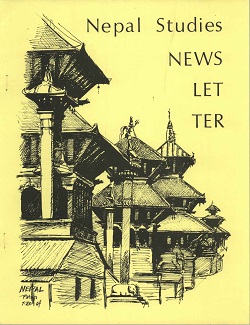Author Biography
Uma Pradhan is a DPhil candidate at the University of Oxford, UK. Her research explores the issue of ethnicity, equality and education in Nepal. Prior to starting her DPhil, she worked for various development organisations in Nepal and India.
Abstract
Mother-tongue education has remained a controversial issue in Nepal. Scholars, activists and policy-makers have, on the one hand, favored mother-tongue education from the standpoint of social justice. Against these views, others have identified this as predominantly groupist in its orientation and not helpful in an imagination of a unified national community. Taking this contention as a point of inquiry, this paper aims to explore the contested space of mother-tongue education to understand the ways in which people position themselves within the polarizing debates of ethnicity-based claims on education in Nepal. Drawing from the ethnographic fieldwork in mother-tongue education school, in this paper, I illustrate that the students made meaning in their everyday world by maintaining the multilingual repertoire that included their mother tongue, Nepali and some English; multilingualism was used as a strategy for mother-tongue education. I propose a notion of simultaneity to explain this attempt to seek membership into multiple groups and display of apparently contradictory dynamics. The practices in these schools, on the one hand, display inward-looking characteristics through the everyday use of mother tongue, the construction of unified ethnic identity and cultural practices. On the other hand, there were outward-looking dynamics of making claims in the universal spaces of national education and public places. The salience of these processes is the simultaneous membership to multiple groups, claims over public spaces and in the spaces of nationalism, hitherto associated with Nepali. This paper illustrates that contrary to the essentialist categories espoused in both nationalist discourse and ethnic activism, students in these school display affiliation to multiple languages and identities that were seen as neither incompatible nor binary opposites.
Creative Commons License

This work is licensed under a Creative Commons Attribution-Noncommercial 4.0 License
Recommended Citation
Pradhan, Uma. 2016. New Languages of Schooling: Ethnicity, Education and Equality in Nepal. HIMALAYA 36(2).
Available at:
https://digitalcommons.macalester.edu/himalaya/vol36/iss2/6


